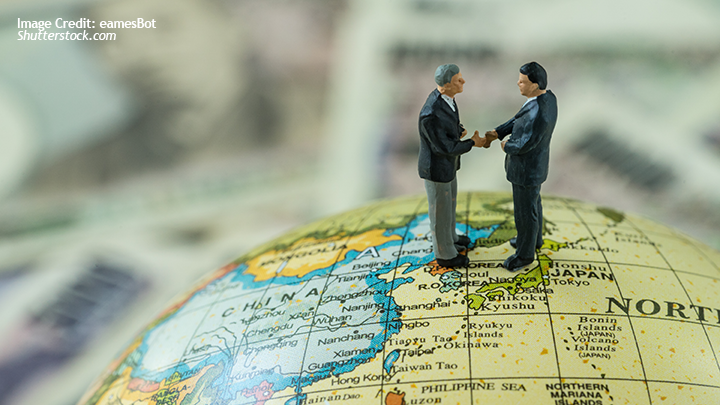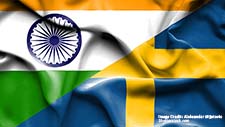Seeking Pivotal Partnership: India and Korea

Jagannath Panda
In many ways, South Korea’s release of its Indo-Pacific strategy in December 2022 not only concretized its “strategic clarity” but also revitalized the long-dormant ambition of a globally relevant Republic of Korea (ROK). South Korean President Yoon Suk-yeol and Foreign Minister Park Jin, must be credited for bringing to the fore the much-touted vision for ROK as a “global pivotal state” (GPS). Put simply, the initiative looks to catapult ROK’s foreign policy from the confines of the Korean Peninsula to the wider Indo-Pacific and beyond.
Recently, this new shift has become amply evident in ROK foreign policy, be it through the resurging US-Japan-ROK trilateral cooperation, expanded economic ties with the US, plans to strengthen supply chains with India, and ROK’s wider (growing) outreach in Europe. However, critics have highlighted that ROK’s GPS campaigning is a “self-anointed” one given its lackadaisical presence in global affairs, including its apparent lack of “explicit” (e.g., heavy weapons) support to Ukraine despite millions of dollars in humanitarian aid. These criticisms have nevertheless been limited and have not really overshadowed the GPS identity that Seoul wants to win in its favor. To that effect, what are the implications of the GPS for regional partner states like India?
Tracing the Potential GPS Trajectory
The political call for a more active and global Korea is not necessarily a new one. In that sense, the transition from Lee Myung-bak’s “Global Korea” – also pursued by subsequent leaders including Moon Jae-in’s “New Southern Policy” – to Yoon’s proactive GPS is not as abrupt as it may appear primarily because of ROK’s staid global relevance thus far. To some extent, this transition to a more active global actor is certainly visible. South Korea’s invitation to the G7 as a guest member in 2020, 2021, and 2023 and calls to expand the G7 recognize ROK’s importance as a “developed economy” – a re-categorization by the United Nations Conference on Trade and Development in 2021.
At the same time, in today’s fragmented and shifting global landscape, the GPS vision faces significant challenges and opportunities. As a major economic power, greater economic diplomacy with small states and fellow middle powers is an important opportunity as South Korea looks to carve its position in the emerging Indo-Pacific global economic architecture. Moreover, President Yoon, in a speech in Davos early this year, highlighted the significance of Seoul’s technological expertise and manufacturing capabilities in semiconductors, batteries, and steelmaking for building resilient global supply chains. In the Indo-Pacific particularly, South Korea could enhance its profile by actively supporting endeavors in improving regional connectivity, regional regulatory and legal capacity building, and bolstering digital governance norms and values, and practical knowledge sharing of its development strategies with developing countries.
It is also vital for Seoul to expand its security-centric engagement with regional partners/forums. The “ironclad” ROK-US alliance can be a starting point for Seoul to enhance its contribution to peace and security in the region. South Korea must also look to increase cooperation with frameworks like the Quadrilateral Security Dialogue (Quad) on specific issues. Gradually ramping up cooperation in areas like public health and climate change can pave the way for greater alignment and collaborations in strategic domains such as maritime security, and emerging technologies. Finally, building on its focus on the Association of Southeast Asian Nations (ASEAN), South Korea must work with multilateral dialogue forums like the East Asia Summit to build a long-term security mechanism in the region.
Why India Matters?
In the GPS-focused new foreign policy, South Korea is increasingly prioritizing diversification by expanding ties with middle powers and regional/global institutions like India, Japan, the EU, ASEAN, and the North Atlantic Treaty Organization. In essence, these partnerships would help strengthen ROK’s voice in regional and global affairs, while also helping navigate the increasingly volatile Sino-American great power competition. Notably, ROK’s GPS policy echoes shades of India’s own multi-alignment foreign policy stance; the latter’s global outreach traverses the extended neighborhood, Eurasia, South America, South Pacific, and the Baltics, among other regions, and India is increasingly central in current geopolitics.
Thus, India plays a vital role as a “special strategic partner” with shared interests and an inclusive Indo-Pacific vision. India’s salience is visible in Seoul’s Indo-Pacific strategy, their bilateral defense deals, their recently held foreign policy and security dialogue, and the April bilateral foreign ministers’ talks. The two partners have already stressed their intent to build on their bilateral, regional, multilateral, and global cooperation.
As India and ROK celebrate 50 years of diplomatic ties, they must elevate their outreach in Southeast Asia via strategic convergence by supporting regional integration initiatives via forums like ASEAN or the India-led Bay of Bengal Initiative for Multi-Sectoral Technical and Economic Cooperation – the latter’s stakes are set to surge with major powers jostling for influence in the Indian Ocean region (IOR). Moreover, with Japan-ROK relations on the mend, India-ROK-Japan must coordinate actions in South and Southeast Asia for a “free, peaceful, and prosperous” Asian order with a focus on Indo-Pacific. Nonetheless, creating a resilient “future-oriented” partnership requires continued and persistent focus across domains – from critical technologies and digital transformation to climate action and cultural exchanges. For example, with India’s growing trade deficit with ROK, both countries must look to build a more conducive trade and investment environment in harness with India’s future growth trajectory in the world economy and ROK’s drive to technological maturity.
Another key area for a stronger India-ROK partnership is maritime security, although their navies and coast guards visit each other’s ports and hold joint exercises. Overall, regular review of defense relations, building stronger logistical support, and enhancing information exchanges to strengthen operational collaboration will be crucial to manifest a stronger, resilient, and comprehensive partnership for the new century.
Yet India and ROK have not capitalized to achieve their common goals. Importantly, a show of solidarity is keenly missing. As Asian powers, India and ROK must prioritize regional concerns; and more so as powers seeking global influence, they would do well to keep the strategic and developmental agenda, including economic and climate security, at the forefront. Or their high-sounding rhetoric will soon lose steam.
This article by Jagannath Panda is first published in The Korea Times.
Related Publications
-
ISDP Annual Report 2023
ISDP’s Annual Report for the year 2023. We look back on 2023, a year in which tensions and conflicts captured the strategic space in ISDP’s focus areas, making headlines around […]
-
South Korea’s Indo-Pacific Strategy, Atmanirbhar Bharat, and the IPEF: Convergence and Commonality
For some time now, the existing multilateral networks such as those of the United Nations (UN) system have been largely ineffective in providing good global governance and helping create resilience, […]
-
Awaiting a Pivotal Partnership? The Case of India and South Korea
The shift toward showcasing South Korea as a proactive stakeholder in the global arena—beyond its foreign policy limitations that have thus far centered on Northeast Asian security—has unlocked the potential […]
-
India-Sweden Strategic Compass
The year 2024 is proving to be quite memorable for India-Europe relations. First off, PM Modi’s multiple visits to the EU member-states of Austria and Poland, as well as Ukraine […]
-
Navigating the Indo-Pacific: How Australia and the EU Can Partner for Peace, Stability, and Prosperity
To navigate the choppy waters of the Indo-Pacific, the EU and Australia must be on the same wavelength regarding shared interests in rules, values, and an open and liberal economic […]




